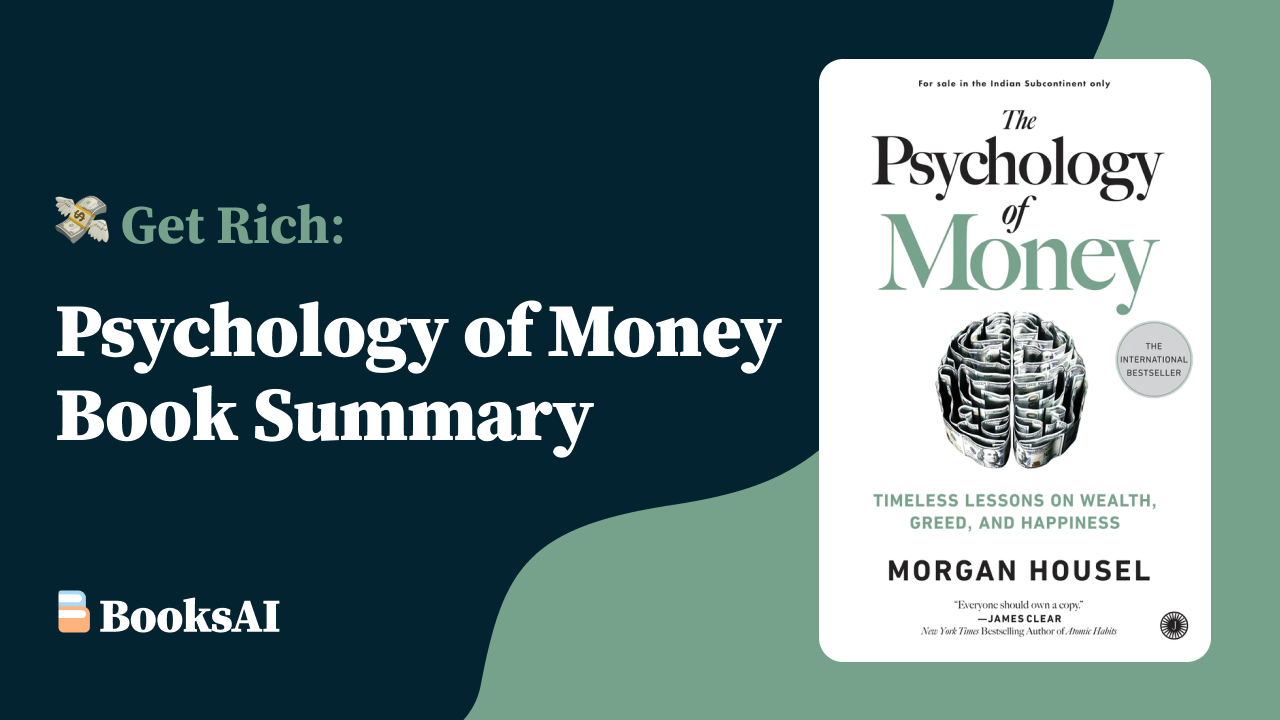
In the world of personal finance, discussions often revolve around numbers, budgets, and investments. However, there’s an equally important aspect that often goes overlooked: the psychology of money. In Morgan Housel’s insightful book, “The Psychology of Money,” readers are taken on a journey through the complex and often irrational ways humans interact with money. Join me as we unravel the pages of this book and delve into the fascinating world of financial psychology.
Understanding Money as a Story
One of the key concepts Housel introduces is the idea of money as a narrative. Rather than being a cold, hard currency, money often carries emotional weight and personal stories. Housel’s exploration of this concept sheds light on how our individual experiences shape our financial behaviors.
The Power of Compounding and Patience
Housel emphasizes the power of compound interest and the virtue of patience in wealth-building. Through compelling anecdotes and real-life examples, he illustrates how consistent, long-term investments can lead to substantial financial growth. This section not only offers valuable financial advice but also highlights the psychological hurdles that often hinder us from adopting this approach. If you want to learn how to be smart with your money, you’re going to want to read this.
The Role of Luck and Risk in Financial Success
Luck, both good and bad, plays a more significant role in financial outcomes than many of us care to admit. Housel eloquently discusses how acknowledging this reality can lead to more informed decision-making and a healthier relationship with money. By recognizing the influence of luck, we can appreciate the need for diversification and risk management in our financial strategies.
Emotional Biases in Financial Decision-Making
Human psychology is rife with cognitive biases that can impact our financial choices. Housel skillfully dissects some of the most prevalent biases, such as loss aversion and recency bias, and provides practical insights on how to navigate them. By understanding these tendencies, readers are better equipped to make rational, informed financial decisions.
The Importance of Adaptability and Flexibility
Money doesn’t grow on tress, and in an ever-changing economic landscape, adaptability is a crucial skill. Housel illustrates this point through captivating stories of individuals who successfully pivoted in the face of adversity. This section serves as a poignant reminder that being open to change and new opportunities can be instrumental in achieving financial security.
A New Perspective on Wealth
“The Psychology of Money” by Morgan Housel offers not only a comprehensive guide to personal finance but also a deep exploration of the human psyche in relation to money. By understanding the emotional, cognitive, and behavioral aspects of financial decision-making, readers can embark on a more informed and balanced journey toward financial well-being.
As we close the pages of this enlightening book, we’re left with a renewed perspective on wealth—one that transcends numbers and embraces the complex interplay of emotions, experiences, and choices that define our relationship with money.







